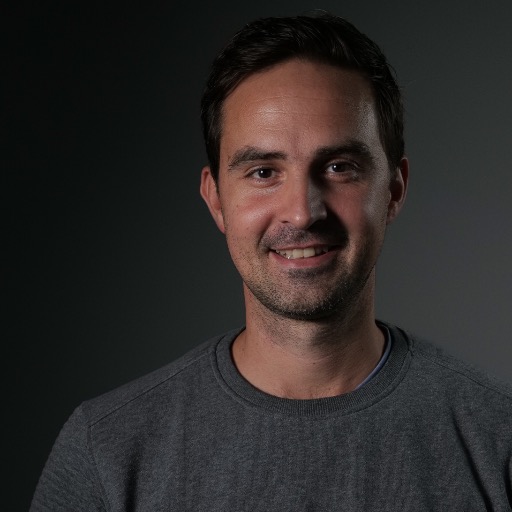We use cookies on this website. Cookies help us deliver the best experience on our website. Read about cookies.
-
- Education
- Education
- Programmes and courses
- Applications and admissions
- Tuition fees
- Scholarships
- Exchange studies at Malmö University
- Study Guidance
-
- After admission
- After admission
- Moving to Malmö
- Pre-orientation
- Arrival guide
-
- About studies at Malmö University
- About studies at Malmö University
- Why choose Malmö University
- Understanding university studies
- Connect with our students
On the page -
- Research
- Research
-
- Doctoral studies
- Doctoral studies
- Doctoral courses
-
- Doctoral schools
- Doctoral schools
- Adaptation of urban space through sustainable regeneration
- ComBine
- Culturally Empowering Education through Language and Literature
- Education, Learning and Globalisation
- Finding ways in a time of great future challenges (FinnFram)
- Swedish National Graduate School in Science and Technology Education Research
- Learning in Multicultural Societal Contexts
- Pedagogy and Vocational Skills
- Relevancing Mathematics and Science Education (RelMaS)
- Sustainable Movement Education
- The National Research School for Professionals in Social Services
- Research subjects
-
- Research centres
- Research centres
- Biofilms Research Centre for Biointerfaces
- Citizen Health
- Imagining and Co-Creating Futures
- Institute for Urban Research
- Malmö Institute for Migration Studies
- Literacy and Inclusive Teaching
- Centre for Work Life Studies
- Sustainable Digitalisation Research Centre
- Centre for Sexology and Sexuality Studies
-
- Research publications
- Research publications
- Search for research publications in Diva
- Malmö University Press
- Research events
- Participate in a research study
- Coffee Break Quiz
On the page -
- Collaboration and Innovation
- Collaboration and Innovation
- Innovation
- Collaboration with students
-
- Collaborate with researchers
- Collaborate with researchers
- Labs and facilities
- Culture collaboration
- Support Malmö University
- Alumni & Friends
On the page -
- About us
- About us
-
- Faculties and departments
- Faculties and departments
-
- Faculty of Culture and Society
- Faculty of Culture and Society
- Department of Global Political Studies
- School of Arts and Communication
- Department of Urban Studies
-
- Faculty of Education and Society
- Faculty of Education and Society
- Department of Childhood, Education and Society
- Department of Sports Sciences
- Department of Culture, Languages and Media
- Department of Natural Science, Mathematics and Society
- Department of Society, Culture and Identity
- Department of School Development and Leadership
- The Centre for Teaching and Learning (CAKL)
-
- Faculty of Technology and Society
- Faculty of Technology and Society
- Department of Computer Science and Media Technology
- Department of Materials Science and Applied Mathematics
- Faculty of Odontology
- University Dental Clinic
-
- Find and contact Malmö University
- Find and contact Malmö University
- Visit Malmö University
-
- News and press
- News and press
- Graphic manual
- Map of the buildings (Google Maps)
- Merchandise
- Supplier information and invoice management
- Whistleblowing
- Management and decision-making paths
-
- Malmö University's strategy 2030
- Malmö University's strategy 2030
- Sustainability
- Widened recruitment and participation
- Quality assurance work at the University
-
- Malmö Academic Choir and Orchestra
- Malmö Academic Choir and Orchestra
- Student work – video pieces
-
- Annual Academic Celebration
- Annual Academic Celebration
- Academic traditions
- Meet our new professors
- Meet our new doctors
- Honorary doctors
-
- The University in a troubled world
- The University in a troubled world
- Campus total defence
On the page

Adrian
Lundberg
Senior lecturer
adrian.lundberg@mau.se
+46 40 665 80 85
orcid.org/0000-0001-8555-6398
Presentation
Adrian Lundberg is a senior lecturer in pedagogy and conducts research on teacher competence, professional development, school leadership, and multilingualism in education. His research focuses on newly qualified teachers’ transition from education to working life, and how school leaders perceive their readiness to meet the demands of the profession. Lundberg shows that new teachers often possess substantial competence, yet are not regarded as fully professional—a mismatch he argues should be addressed through structural support rather than individual-based critique. His research thus contributes to the development of induction programs, collaborative learning environments, and more sustainable school organizations.
A central method in Lundberg’s work is Q methodology, an innovative research approach that combines qualitative and quantitative elements to explore people’s subjective viewpoints. He has established himself as a leading voice in the use of Q in educational research and is co-editor of the book Advancing Language Research through Q Methodology (2024). His methodological expertise is applied in teacher education, school development, and higher education, including studies on how university teachers have re-evaluated their understanding of teaching in the wake of the pandemic.
As an extension of his research, Adrian Lundberg is also developing sort:it, a reflection tool aimed at supporting teachers, school leaders, and student teachers in their professional development. The tool is grounded in research on teacher competencies and structured reflection, and the ambition is for it to be used in both educational and school contexts as part of systematic quality work. Sort:it aims to make competencies visible, strengthen collegial learning, and contribute to a more sustainable teaching profession.
Publications
-
2025 | Conference paper
Bringing together university educators' and students' perspectives on teaching quality
Martin Stigmar, Adrian Lundberg
-
2025 | Article in journal
Transitioning from doctoral student to doctoral supervisor
Adrian Lundberg
-
2025 | Chapter in book
Q Methodology and Educational Psychology
Adrian Lundberg
-
2025 | Article in journal
Higher Education Teaching Quality in the Aftermath of the Double Disruption
Adrian Lundberg, Martin Stigmar
-
2025 | Article in journal
Middle leaders’ sensemaking of their leadership practices in response to educational disruption: A Q-methodology study
Youmen Chaaban, Rania Sawalhi, Adrian Lundberg